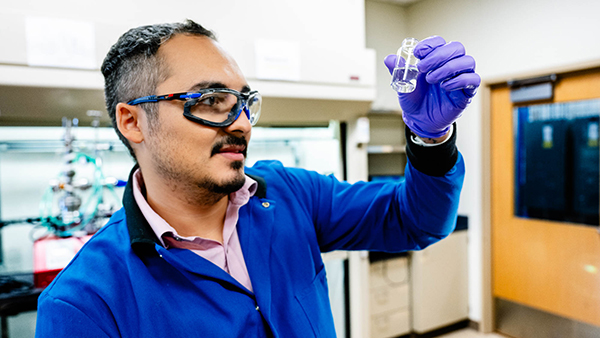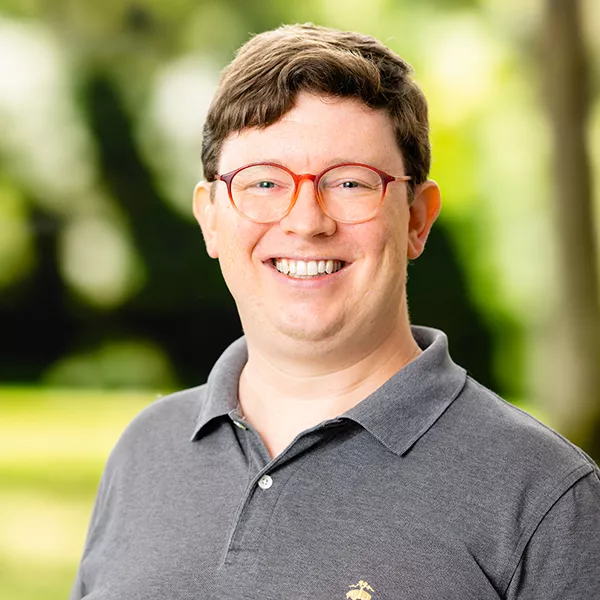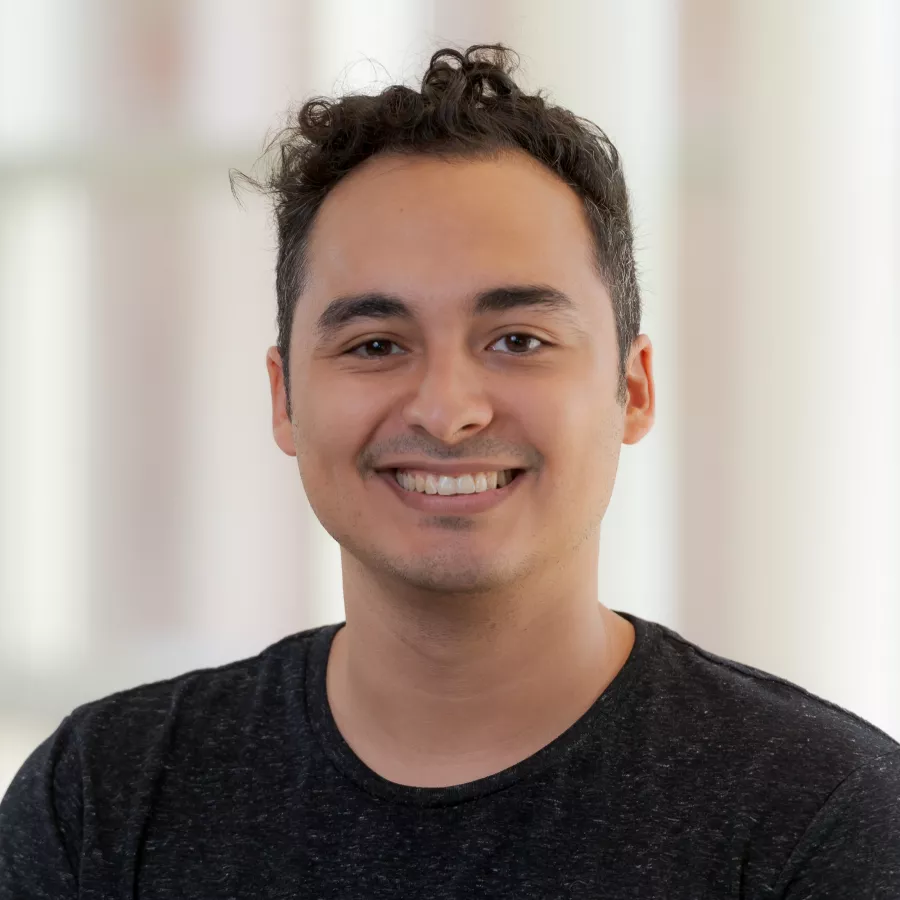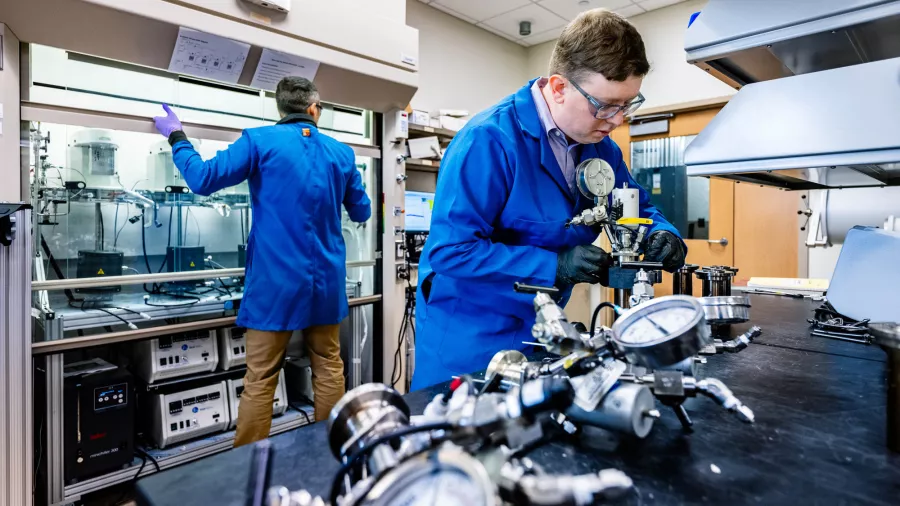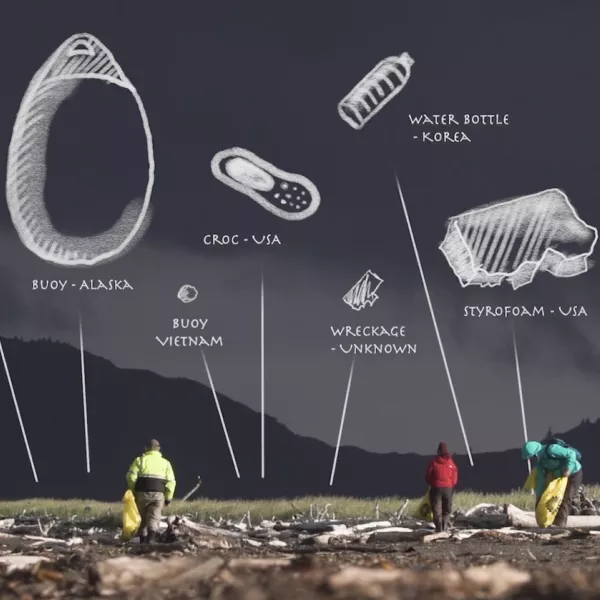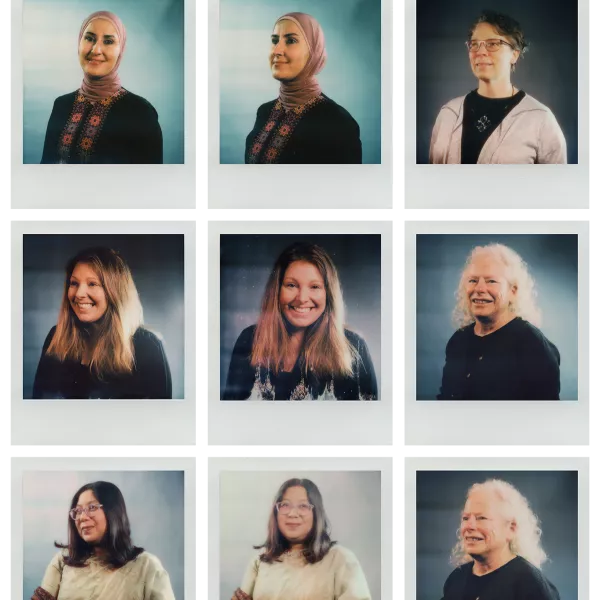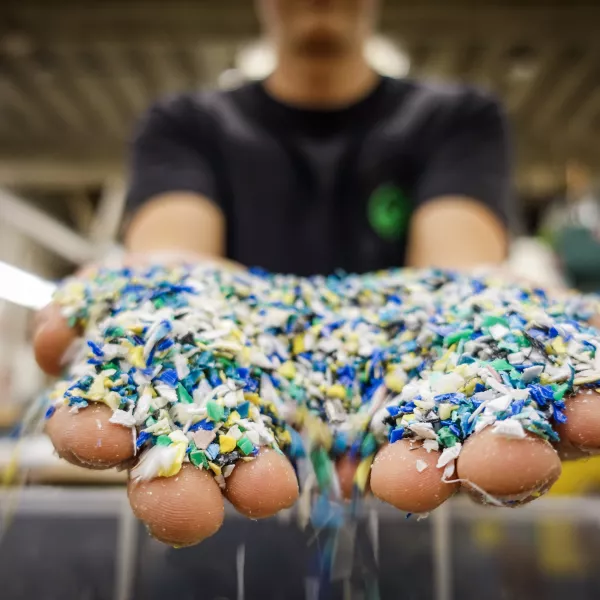WWU alum Ryan Hackler’s company is tackling a sticky environmental problem: how to recycle plastics more sustainably.
Now, with a competitive grant of $1.5 million from the Department of Energy, Hackler’s startup Aeternal Upcycling Inc. is poised to not only keep more plastics out of the landfill, but provide a more sustainable alternative to petrochemicals. The chemical recycling process he invented can turn post-consumer plastic into lubricants commonly used in industrial settings, waxes for food processing and cosmetics manufacturing, and even jet fuel.
“We’re trying to target products that are traditionally coming from the petrochemical refinery apparatus, and provide a sustainable alternative,” says Hackler, the CEO of Aeternal Upcycling.
Converting all our plastic waste into these petrochemical alternatives would make a huge difference in the world’s greenhouse gas emissions, Hackler says: It would be like taking all the cars off the road in Mexico, Spain, California, New York and Illinois, combined.
“What we’re really trying to do is provide an alternative, while also getting a second use out of that plastic,” Hackler says. “We can make things like waxes for cosmetics, we can make lubricating oils for your car, or gear box oils for wind turbines, which use a great deal of oil to lubricate the moving metal components in their internal gearbox. Those traditionally have come from petrochemicals.”
Hackler, who grew up in Bellingham, first started thinking about the environmental cost of the petroleum industry in the aftermath of the 1999 Olympic Pipeline explosion near Whatcom Creek that killed three (including 10-year-old Wade King, for whom the Student Recreation Center is named ) and scorched a charred path through the city. After completing WWU degrees in both chemistry and politics/philosophy/economics, Hackler went on to earn a doctorate in chemistry at Northwestern University, then worked as a postdoctoral researcher at the Department of Energy’s Argonne National Laboratory.
It was at Argonne that Hackler developed a cutting-edge technology to break down plastic through a process called catalytic hydrogenolysis.
Plastics recycling is in drastic need of an upgrade, Hackler says. Most of the plastic that goes into recycling bins ultimately ends up in the landfill. The problem: the most common method of recycling plastic degrades the material for reuse. Most plastics can’t tolerate more than a couple rounds of mechanical recycling before they’re unusable.
“Current technologies for recycling just aren’t well equipped to deal with the different types of plastic material,” Hackler says.
Hackler’s catalytic hydrogenolysis method works by combining shredded plastic, hydrogen gas and a patented catalyst to create the kinds of chemical feedstocks valued by industry. Hackler teamed up at Argonne with fellow Northwestern post-doc Robert Kennedy, who is now Aeternal Upcycling’s chief technology officer.
The fledgling company got a boost last year when Hackler and Kennedy were among a handful of clean-energy startups selected for a DoE entrepreneurship program to further develop the technology. And this fall, they received $1.5 million from DoE’s Reducing Embodied-energy and Decreasing Emissions (REMADE) Institute, a federal initiative to boost the circular economy.
Hackler and Kennedy hope to use the REMADE grant to set up a pilot plant to demonstrate the viability of the idea, hire some employees and scale up to go to market. Their plastic-derived industrial products are economically competitive with the traditional petrochemicals, Hackler says, and provide a significant incentive to consumers who prefer more sustainable products.
“I tell people, if you have a habit of sorting and recycling your plastic, even if it’s not all getting recycled right now, don’t get discouraged,” Hackler says. “Continue to sort your plastic, because eventually we will be able to recycle all the plastic waste we generate, but only if we work together.”
